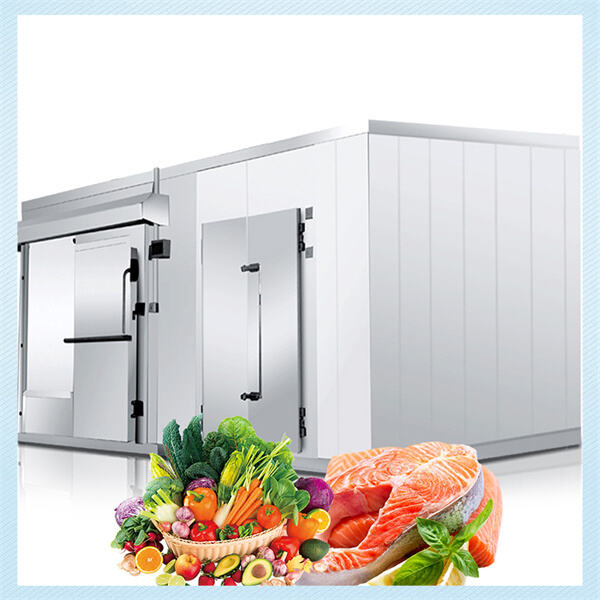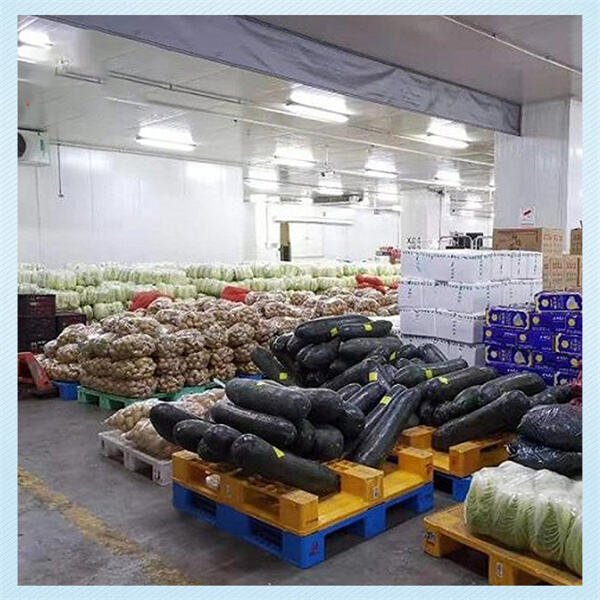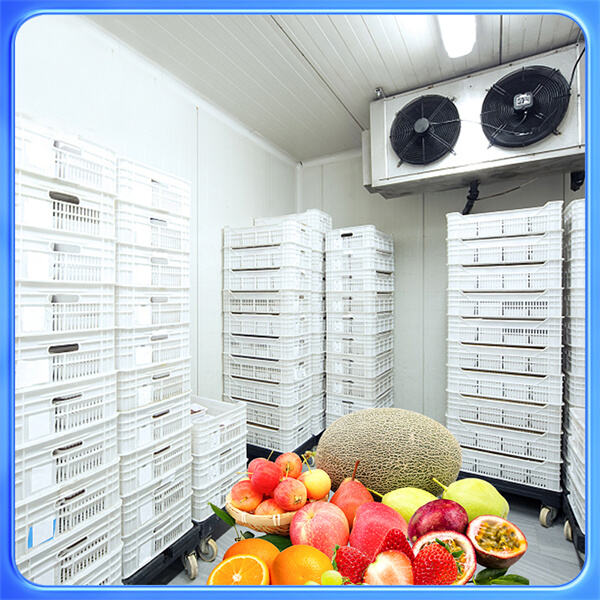
Існує спеціальне місце, яке називається холодильна камера, і воно добре зберігає нашу свіжу їжу. Холодильні камери це спеціальні кімнати, які захищають фрукти, овочі та м’ясо, щоб вони довго залишалися свіжими. Зараз, напевно, гарний час подумати про те, чому холодильні камери є таким важливим обладнанням, і як вони насправді працюють.
Холодильні камери вони більше схожі на солдатів, коли мова йде про швидкопсуючі товари. Прикладами швидкопсуючих продуктів є молоко, сир і йогурт, адже якщо вони не будуть залишатися холодними, то швидко зіпсуються. Холодильні камери тримають ці продукти свіжими протягом тривалого часу, допомагаючи запобігти втратам і заощадити гроші.

Холодильні камери мають підтримувати певну температуру, щоб зберігати свіжість продуктів. Вони оснащені спеціалізованими охолоджувальними системами, які здатні утримувати температуру всередині. Це важливо, тому що різні продукти мають різні оптимальні температури зберігання. Наприклад, фрукти та овочі потребують трохи вищої температури, ніж м’ясо та молочні продукти. Холодильні камери можуть регулювати температуру залежно від типу продуктів, тому ви можете бути впевнені, що все збережеться якомога довше.

Холодильні камери — це найкращий варіант для зберігання великих обсягів їжі. Вони нагадують великі холодильники, здатні вмістити багато продуктів водночас. Це має велике значення, коли бізнесів де великий запас їжі є ключовим для обслуговування клієнтів, наприклад, у продуктових магазинах чи ресторанах. Вони дозволяють зберігати великі кількості їжі організовано, у зручному для доступу місці, забезпечуючи ефективне функціонування вашого бізнесу.

Використання холодильних камер для комерційного охолодження має багато переваг. Вони зберігають свіжість продуктів тривалий час, що допомагає бізнесу економити кошти за рахунок мінімізації втрат їжі. Холодильні камери є ефективними та для їхньої роботи потрібно менше електроенергії. Розробник стверджує, що це може допомогти підприємствам економити на рахунках за електроенергію та зменшити їхній вплив на навколишнє середовище. Ще однією перевагою холодильних камер є їхня простота у чищенні та обслуговуванні, що робить їх вигідним вибором для компаній, яким потрібно зберігати великі обсяги харчових продуктів.